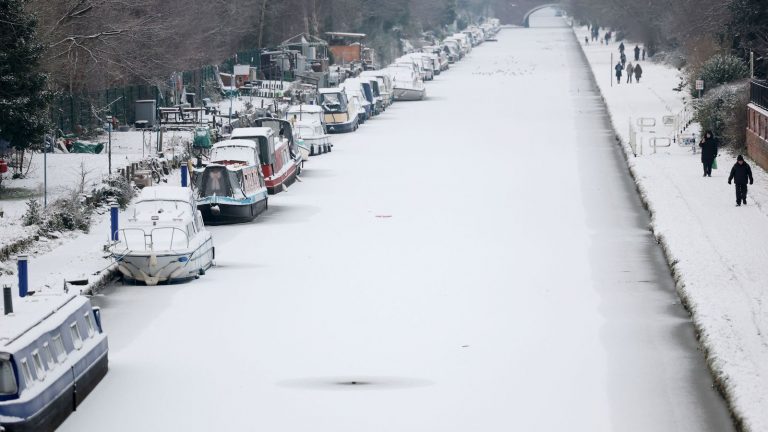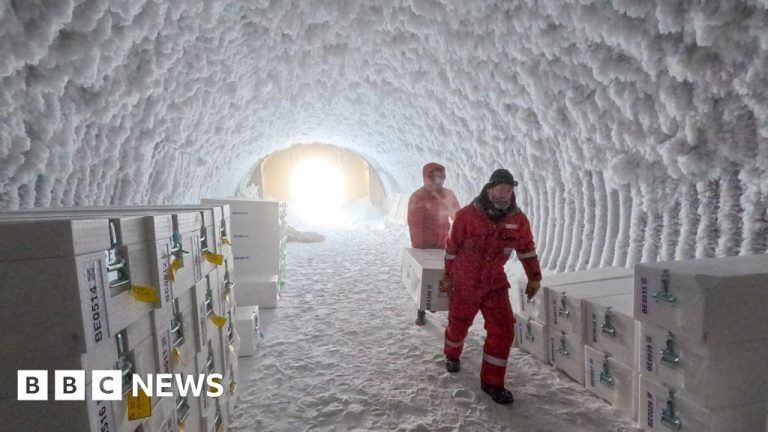Britain looks set for a blustery, rainy and possibly snow-hit start to 2025, with much of the UK covered by yellow weather warnings for 1 January 1.
There are three Met Office weather warnings in place across the day, covering all of England, Wales and Northern Ireland, as well as southern Scotland.
Only northern parts of Scotland are not covered by the warnings – though another yellow weather alert for rain and snow is in place until 11.59pm on December 31.
Here’s what forecasters are predicting across the UK over the next few days, including the start of the new year.
England
There are several yellow weather warnings covering different parts of England over the next few days, including one on Monday.
That yellow alert for wind is in place for the North Pennines and Yorkshire Dales from 11am until 6pm.
It warns of potential disruption to travel in the area and the potential for short-term power cuts.
Another yellow weather warning for wind comes into place from 7am on New Year’s Eve. That covers the northeast of England, down towards Bridlington in East Yorkshire, and across towards Carlisle in the northwest.
It warns of “strong westerly winds” that could lead to travel disruption on New Year’s Eve.
All of England is then covered by a yellow weather alert for “very strong winds” from 9am on New Year’s Day, with a chance of disruption to travel services, and a slight chance of damage to buildings.
That warning is due to last until 6am.
Areas of northern England, including Manchester, Sheffield, Leeds, York, and Carlisle are also covered by a yellow weather warning for “heavy and persistent” snow from 9am on New Year’s Day until 3am on 2 January.
Wales
Wales is covered by two yellow weather warnings on New Year’s Day.
One alert, for heavy rain, covers a central belt of Wales from the north coast, to the south, and is in place from 9am until 9pm.
All of Wales is then covered by a yellow weather alert for “very strong winds” from 9am on New Year’s Day until 6am on 2 January, with a chance of disruption to travel services, and a slight chance of damage to buildings.
Scotland
Almost all of Scotland is covered by a yellow weather alert for rain and snow on Monday until 11.59pm on New Year’s Eve.
It warns that some homes and businesses could be flooded and there could be delays to travel services.
Orkney, which is not covered by this warning, is covered by another alert for snow lasting from 5am on New Year’s Eve until midnight.
Southern areas of Scotland, including Edinburgh and Glasgow, are also covered by another wind alert from 7am on New Year’s Eve until 11pm.
Read more from Sky News:
President Biden leads tributes to Jimmy Carter
One of UK’s oldest golf clubs fights for its future
Southern Scotland is also covered by a yellow weather warning for “heavy and persistent” snow from 9am on New Year’s Day until 3am on 2 January.
Northern Ireland
A yellow weather warning is in place for much of Northern Ireland, covering Belfast, Londonderry, Coleraine and Larne, from 6am until 7pm on New Year’s Eve.
The whole of Northern Ireland, from Derry to Enniskillen, and Newry to Ballycastle, was covered by a yellow weather alert for “heavy and persistent” snow from 7am until 11.59pm on New Year’s Day, but that has now been withdrawn by the Met Office.



































+ There are no comments
Add yours